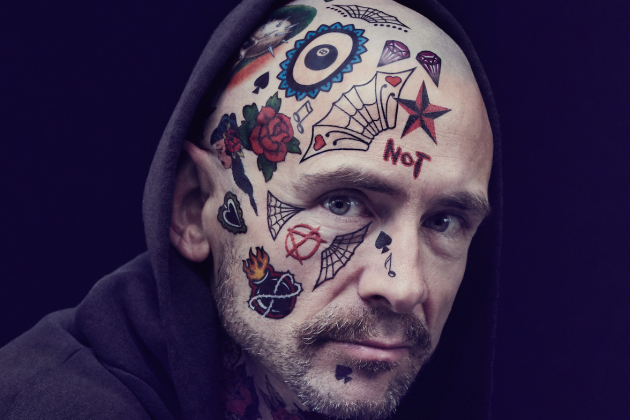Chuck Palahniuk on His New Serial Killer Novel and the One Part He Didn’t Like in the ‘Fight Club’ Movie

Chuck Palahniuk’s just-released 20th novel, “Not Forever, But For Now,” is dark and twisted, even for him. The author of “Fight Club” and “Choke” profiles two Welch brothers named Otto and Cecil, who squander their days away in a mansion performing sexual acts on each other and both committing and plotting murder. Yet their grandfather hopes to recruit them to the family business of changing the course of history through committing atrocities like the death of Princess Diana and 9/11. Palahniuk spoke to Variety about the subversive ideas he turns into books, censorship in the United States and the one thing he didn’t love from the film adaptation of “Fight Club.”
“Not Forever, But For Now” deals with family legacy, which has been something you’ve examined in your work before. Plus, it seems like in politics and pop culture, it’s been discussed frequently in the last decade, from the Trumps to “Succession” to nepo babies. Why was it a topic you wanted to tackle in this novel?
More from Variety
'Fight Club' Author: China's Censored Ending Hits Closer to My Original Vision Than Fincher Did
'Fight Club' Author Chuck Palahniuk Seeks Crowdfunding for 'Lullaby' Movie
I never want to be overtly political, but in this case, I wanted to really look at empire and whether the next generation is going to be willing to take on the kind of mass slaughter and assassination that keeps empire in place. So you’ve got these two little boys: They’ll kill the servants, but will they go out in the world and kill huge numbers of people just to keep that crenelated house over their heads?
How did you select the real world events that Otto and Cecil’s family is responsible for?
The very first one that gave me the idea was I was driving through Burbank to an appointment in December and passing somebody’s front yard. I saw this enormous Christmas display of wise men and sheep and shepherds and everything. It was the blow up kind, but the blowers weren’t working. So they were all just lying there on the lawn, and my first thought really was that is exactly what Jonestown looked like. And the parallel was so perfect in my mind that that’s where I started from.
Your books have so many indelible images that are shocking. When you’re writing, do you tend to think of the characters first, or the concept, or do you have visual flashes?
My books tend to start from a whole bunch of different spots, and all those spots kind of metastasize towards one another until the whole book is done. So I started with a short story about people who took cars for insurance scams and put them in a lake, and then after that started picking up sex dolls for the same insurance scams and putting them in the lake. And a short story about I can’t remember what else, but they all started as a bunch of short stories that eventually grow to touch each other.
Why do you think your work lends itself to having such a loyal fan base?
Boy, that’s a big question with a lot of speculation. It might be that that my books tend to go to the scariest, darkest places that most other kind of mass-tested material does not. Everything on Netflix has to reach such a huge audience. But my books are gonna give people a darker journey than something that’s been test marketed in a million different screening rooms.
As someone whose books have been banned many times through the years, do you feel we’re in the middle of a moment where a loud minority are calling for more bannings, or rather we’re at a cultural downswing where this could be the new normal?
Since 9/11, people have not gone near transgressive material, publishers would not touch it. So this kind of voluntary ban or cultural ban started September 12th, 2001. So maybe we’re seeing the worst of it now, and maybe it’s actually getting better.
What do you like to read personally? Do you tend to be on the more transgressive side or do you totally zag and have comfort food?
In this case I wanted to read a bunch of cozy mysteries, those sort of English mysteries where somebody is butchered and a cat solves the crime, or Miss Marple solves the crimes. I read a bunch and then I wanted to adopt all the tropes and use them for something very, very dark. But normally I just read short story collections because it gives me such a little taste of so many different writers and I’m not committed for 800 pages.
Were there any parts in the “Fight Club” movie adaptation that you didn’t understand at first, or that surprised you?
I wasn’t a big fan of the ticking bomb, that counting down clock near the end. And [screenwriter] Jim Uhls stuck it in because there’s obviously such a trope, and I’ve grown to accept that it is a trope.
Best of Variety
Oscars Predictions: Best Actor - There Will Be Blood in the Lead Actor Race
Everything We Know About 'I Am Legend 2,' Starring Will Smith and Michael B. Jordan
Sign up for Variety’s Newsletter. For the latest news, follow us on Facebook, Twitter, and Instagram.